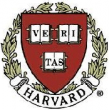Sunday, April 25. 2010
 In " Open Access - if you build it (for them) they will come…," Jan R. writes: "Robert Darnton['s]... "The Case for Open Access" makes the useful point that Universities will probably be much more effective in building their IRs if they mandate permission (i.e. require faculty to secure and then give the university non-exclusive permission to host their works on the institutional repository) as opposed to mandating deposit (i.e. requiring faculty to do the work of stocking the repository.)" But what Professor Darnton actually wrote (in Feb 2008) was this: "Many repositories already exist in other universities, but they have failed to get a large proportion of faculty members to submit their articles. The deposit rate at the University of California is 14 percent, and it is much lower in most other places. By mandating copyright retention and by placing those rights in the hands of the institution running the repository, the motion will create the conditions for a high deposit rate." In other words, Darnton was not comparing deposit mandates to permission mandates: he was comparing (actual) repositories without deposit mandates to (hypothetical) repositories with permission mandates (not yet in existence at the time, the world's first being Harvard FAS's, adopted in that month).
There was then (and there still is now, two years later), no evidence at all that mandating permission would be more effective in generating Open Access than mandating deposit. Quite the opposite. Deposit mandates (of which there are more, and of longer standing than permission mandates) have been extremely effective, and that evidence was already there in 2008. In contrast, the effectiveness of permission mandates, which are more recent (beginning in 2008) and less numerous, is not yet known.
Moreover, permission mandates, because they in fact ask for more than just deposit, all have to allow an opt-out clause (for those authors who cannot or do not wish to negotiate permission with their publishers). Hence not only is the effectiveness of permission mandates not yet known: it is not even clear whether permission mandates are indeed mandates at all.
[ MIT, the university with the planet's first university-wide permission mandate, had 850 deposits in March 2010, one year after adoption. This needs to be considered as a percentage of MIT's annual journal article output: the figure to beat is the current worldwide baseline 20% rate for spontaneous, unmandated deposit. Most deposit mandates are at about 60% within 2 years and well on the road toward 100%. -- But I've also heard recently that Harvard's longer-standing FAS policy has more promising compliance rates, which I hope will be reported publicly, by way of feedback and guidance on the effectiveness of the Harvard model.]
The bottom line is that deposit mandates are necessary for OA, whereas permission mandates are (desirable but) not necessary. The optimal solution is hence to mandate deposit, without opt-out, plus permission, with opt-out: • "Upgrading Harvard's Opt-Out Copyright Retention Mandate: Add a No-Opt-Out Deposit Clause"
• "Which Green OA Mandate Is Optimal?"
• "The Immediate-Deposit/Optional-Access (ID/OA) Mandate: Rationale and Model"
• "Optimizing OA Self-Archiving Mandates: What? Where? When? Why? How?"
• "How To Integrate University and Funder Open Access Mandates"
• "On Not Putting The Gold OA-Payment Cart Before The Green OA-Provision Horse"
Stevan Harnad
American Scientist Open Access Forum
Saturday, April 24. 2010
 [ This is Canada's 11th OA Mandate: 8 funder mandates and 2 departmental mandates, but it's Canada's first institution-wide one. Sweden's Blekinge Institute of Technology has also just adopted an institution-wide OA mandate, its second, alongside a funder mandate: See ROARMAP.]
Concordia University Opens its Research Findings to the World; Senate Supports Free Internet Access to Faculty and Student ResearchMONTREAL, April 22 (AScribe Newswire) -- Concordia University's academic community has passed a landmark Senate Resolution on Open Access that [requires] all of its faculty and students to make their peer-reviewed research and creative output freely accessible via the internet. Concordia is the first major university in Canada where faculty have given their overwhelming support to a concerted effort to make the full results of their research universally available.
"Concordians have, once again, found a way to share their innovative findings and creativity with communities the world over", says Judith Woodsworth, President and Vice-Chancellor of Concordia. "As befits its role as host of the Congress of the Humanities and Social Sciences next month, our university is now leading the way on this year's Congress theme: Connected Understanding/le savoir branche."
Gerald Beasley, Concordia's University Librarian, was instrumental in the campus-wide dialogue on open access that began more than a year ago. "I am delighted that Senate voted to support the recommendations of all four Faculty Councils and the Council of the School of Graduate Studies. There are only a handful of precedents in North America for the kind of leadership that Concordia faculty have demonstrated by their determination to make publicly-funded research available to all rather than just the minority able to afford the rapidly rising subscription costs of scholarly databases, books and journals."
This past year, Concordia launched Spectrum, an open access digital repository that continues to grow beyond its initial 6,000 dissertations submitted at Concordia, and at its predecessors Sir George Williams University and Loyola College. [In addition to requiring deposit of peer-reviewed journal articles, the] Senate Resolution encourages all of Concordia's researchers to deposit their research and creative work in Spectrum.
Thursday, April 8. 2010
 Here are the latest six Green OA Mandates. (Still keeping up, but looking forward to the day when I no longer can!)
149 Wake Forest Library Faculty
150 Telethon Italy
151 Harvard Business School
152 Duke University
153 University of Lincoln
154 University of Puerto Rico School Of Law
Wednesday, April 7. 2010
 Commentary on: Commentary on:
Jean-Gabriel Bankier & Courtney Smith. " Digital Repositories at a Crossroads: Achieving Sustainable Success through Campus-wide Engagement" VALA2010 Conference Proceedings (2010).
"...many traditionalists still believe in the post-print driven approach. Stevan Harnad, the “archivangelist,” recently argued that the “main raison d’etre” of the IR is to capture the institution’s own “institutional refereed research journal article output” (Harnad, 2009). To solve the engagement problem, these traditionalists espouse mandates as the only viable solution...
"...we find that the most successful IRs are those that strive to engage a diverse set of groups across campus, specifically liaising and serving both academic and non-academic units, accepting a wide scope of content, aligning repository services with the mission of the university, and facilitating new opportunities for knowledge production and publication." (1) It's rather early to be described as a "traditionalist" in a field (Open Access, OA) that has yet to get off the ground!
(2) The problem that both OA and Institutional Repositories (IRs) were invented to solve was the problem of providing access -- to the 2.5M articles published annually in the planet's 2.5K peer-reviewed journals -- not only for those users whose institutions can afford to subscribe to the journal in which an article happened to be published, but for all would-be users.
(3) The purpose of OA is to maximize research uptake, usage, impact and progress, to the benefit of research, researchers, their institutions, and the tax-paying public that funds much of research and research institutions.
(4) There was indeed a link between OA and institutional libraries' "serials crisis," but only in the sense that no institution could afford subscription access to all or most of the 2.5M annual articles that were OA's primary target.
(5) The institutional libraries worked on trying to lower journal subscription prices so as to make journals more affordable, and they also flirted with the idea of trying to help convert journals from charging institutional subscription fees for access to instead charging institutional article fees for publication ("Gold OA" publishing) by providing funds for it.
(6) But a conversion to Gold OA publishing was largely in the hands of publishers, and while scarce institutional funds were still heavily committed to paying for costly subscriptions, there was not much spare cash available to pay for Gold OA publishing fees.
(7) Nor did there need to be spare cash, since all researchers could provide OA to their own articles cost-free by depositing them in their institutional OA repositories (IRs) immediately upon acceptance for publication ("Green OA" self-archiving).
(8) It soon became evident that despite the demonstrated benefits of OA for both usage and impact, IRs were remaining largely empty (baseline spontaneous deposit rate: 15%) because, as authors indicated in worldwide, cross-disciplinary surveys, most would (because of uncertainties about legality and about the effort involved) only provide Green OA if deposit was mandated by their institutions or funders.
(9) So now we "neo-traditionalists" are working on getting universities and funders to mandate Green OA (as over 100 institutions, including Harvard and MIT, and over 40 funders, including NIH and all the UK funders, have already done).
(10) What BE Press seems to be advocating instead is to set aside filling IRs with the target OA content and focus instead on other useful things one can put into them and use them for.
(11) Well, by all means do other useful things with IRs too, if you like, but do it in addition to doing the most useful thing a university can do -- which is to mandate Green OA -- not instead.
(12) Perhaps it is not so surprising that this recommendation to change the objective for success comes from BE Press. -- After all, BE Press is in the IR business, not in (Green) OA provision (which is not a business, and is in the hands of researchers, their institutions and their funders)...Dror, I. and Harnad, S. (2009) Offloading Cognition onto Cognitive Technology. In Dror, I. and Harnad, S. (Eds) (2009): Cognition Distributed: How Cognitive Technology Extends Our Minds. Amsterdam: John Benjamins
Harnad, S. (2009) The PostGutenberg Open Access Journal. In: Cope, B. & Phillips, A (Eds.) The Future of the Academic Journal. Chandos.
Harnad, S. (2008) Waking OA’s “Slumbering Giant”: The University's Mandate To Mandate Open Access. New Review of Information Networking 14(1): 51 - 68
Harnad, S. (2007) The Green Road to Open Access: A Leveraged Transition. In: Anna Gacs. The Culture of Periodicals from the Perspective of the Electronic Age. L'Harmattan. 99-106.
Harnad, S. (1995) Universal FTP Archives for Esoteric Science and Scholarship: A Subversive Proposal. In: Ann Okerson & James O'Donnell (Eds.) Scholarly Journals at the Crossroads; A Subversive Proposal for Electronic Publishing. Washington, DC., Association of Research Libraries, June 1995.
Harnad, S. (1991) Post-Gutenberg Galaxy: The Fourth Revolution in the Means of Production of Knowledge. Public-Access Computer Systems Review 2 (1): 39 - 53
Tansley, R. & Harnad, S. (2000) Eprints.org Software for Creating Institutional and Individual Open Archives D-Lib Magazine 6 (10)
Stevan Harnad
American Scientist Open Access Forum
|
 In "
In "
 Here are the latest six Green OA Mandates. (Still keeping up, but looking forward to the day when I no longer can!)
Here are the latest six Green OA Mandates. (Still keeping up, but looking forward to the day when I no longer can!)

